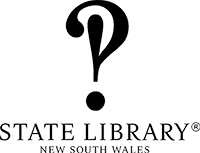Pages
FL662055
Introductory Remark The Orthography of this Dialect is for the purpose of simplicity, reduced as much as was practicable to the Elementary sound of the vowels being the same system as has been generally adopted in the South Sea Islands [word crossed out] Accordingly the vowels retain the same sound wherever they occur with very few & slight varations. Like most languages this language has a few letters peculiar to itself [words crossed out] which of course cannot be so precisely expressed by our letters.
FL662058
Alphabet. A. A broad & open sound like a in father, less broad when short not so open when followed by n ng B. Like the English D. Mostly like the English, sometimes as soft as to admit of a "Spiritus asper" approaching somewhat to th in "the" G. Hard as in go, give. I. Like ee in seen or i in him. K. Rather [words crossed out] I doubt [indecipherable] though there are some words which begin with a consonant rather harder than g Though not quite as hard as the English K. L.) U.) Like the English M.) N.) Ng. A nasal sound like ng in hang but often commencing words & then very soft (easy & fluid) U. Not clear & open like in English but rather like u in gum, fun & c
FL662060
R. A much rougher sound than in English (like the German0 some times followed by a "spiritus asper" like the Greek as then it is very soft. U. Like the English in full or in moon. W. Like the English Y. Like the English in the beginning of a word as yet, young. Dipthongs. Ae. Ai. Ei. Uo. (oi ui) The exact sound of these ca easily be described but [word crossed out] as a general rule applicable to all the dipthongs it may be observed that before according to their elementary sound both letters in quick succession as as [indecipherable] write them in one sound will approach nearest the correct pronunciation. Thus ai has a [indecipherable] or more open sound than i in wide, nice and ei is not quite so broad as i in wide Uo sounds like oo in poor or u in sure Ae like a in age. Au and Ua are of very rare occurrence.







